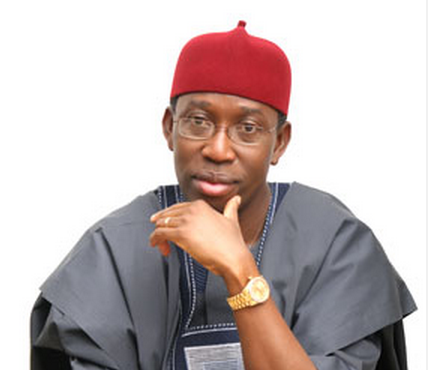· Panelists say Kwara a model for women empowerment
· Gender inclusion good for growth: AbdulRazaq
Mainstreaming gender inclusion in governance requires institutional and legal reforms and deliberate efforts by political leaders to give women a fair chance to contribute their own quota to development, according to panelists at the 1st Kwara State Gender Conference held on Thursday.
The virtual conference was attended by former Liberian President Ellen Johnson Sirleaf; Deputy Secretary General of the United Nations Amina Mohammed; Minister of Women Affairs Pauline Tallen; World Bank representatives; ECOWAS Parliament; and Chair of the Forum of Nigerian First Ladies Erelu Bisi Fayemi; First Lady of Kwara and Secretary of the First Ladies Forum Dr Mrs Olufolake AbdulRazaq; the First Lady of Sokoto State Mrs Mairo Tambuwal; Dangote Foundation; among several others.
In his remarks welcoming regional leaders, top gender rights advocates, and boardroom gurus to the virtual conference, Governor AbdulRahman AbdulRazaq said gender inclusion is key to faster growth that leaves no one behind.
“We set out to offer a strong platform to state and non-state actors alike to discuss domestic, bilateral and multilateral strategies to increase women’s participation in our societies. True to that, we are joined at this conference by some of the strongest voices in the clamour for better opportunities for women in Africa. Kwara State is actively taking the lead in the campaign for gender inclusion because we are convinced that a society works better and grows faster when no one is denied equal opportunities to succeed. And we have no regret pursuing this noble cause,” he said.
He said the state has also invested a lot in the economic empowerment of women especially through its social investment programmes which prioritise indigent women, and commended the Dangote Foundation and the Central Bank of Nigeria for the recent support that targeted women.
Former Liberian leader Sirleaf said advocacy for women empowerment should include reforms at various levels, a view shared by World Bank Country Representative for Liberia Khwima Nthara who said institutions need to undergo reforms to promote gender inclusion and women empowerment.
Sirleaf called AbdulRazaq a regional leader in promotion of gender inclusion and said other leaders should emulate him.
“You have demonstrated that ensuring parity in leadership positions can be done. You have moved considerably the numbers of women at the leadership level in the civil service and the numbers of female cabinet members are truly to be applauded,” she said.
Tallen, for her part, said the federal government is also putting in place various mechanisms, including striking partnerships with key institutions like the National Assembly, to boost women empowerment.
“I just returned from tour of some states and in my conversations, I made reference to what the Governor of Kwara State has done by having more gender based cabinet and that has yielded better results,” she said.
Nthara said the world bank is supporting countries and subnational entities with agenda for girls to have access to good education and reproductive health services.
“The world bank rather is supporting legislative and institutional frameworks that are promoting gender equality and women in empowerment”, he said.
United Nations Women Representative to Nigeria and ECOWAS Ms Comfort Lamptey called for increased support for various measures that break all the barriers against women.
“We urge you (the governor) to encourage other governors and bring them on board in this quest for gender equality,” she said.
ECOWAS Parliament Speaker Sidie Mohamed Tunis said Article 63 of the ECOWAS Treaty called on member states to formulate policies and development of programmes which enhance women’s economic, social and cultural conditions.
“ECOWAS has adopted several instruments and established institutions to secure social protection for women and increase their participation in governance. One of such instruments is the supplementary act on equality of rights between women and men for sustainable development in the ECOWAS region,” Tunis said.
Anna Raas, a representative of the Swedish embassy shares experience on how the European country has put in place policies that puts gender equality at the centre of policymaking.
She said gender equality is not just about equality for women but for also men. She said one major area that is helpful in driving gender equality is by ensuring the sexual and reproductive rights of women.
Fayemi called for strengthening of the political and legal frameworks for protecting women, hailing the unprecedented political will displayed by AbdulRazaq while also commending the pro-women institutional frameworks in Ekiti.
She asserted that only legal and political frameworks would herald sustainable gender inclusion, urging subnational governments to also domesticate the national gender policy.
She urged states to pass Gender-Based Violence bills into law.
Mrs Tambuwal, for her part, said gender inclusion is majorly about fairness and justice, calling on Nigeria to domesticate and implement various global conventions on gender rights.
“However, political will is very key,” she added.
Mrs AbdulRazaq, who co-hosted the conference with the Governor, commended the state government for the event and recalled steps so far taken in Kwara, including by her office, to promote gender inclusion.
“I trust that we will continue the conversation within and among communities in order to amplify the voice of every girl, listen to the word of every woman and support women in political process,” she said.
Rafiu Ajakaye
Chief Press Secretary to the Governor
01 October, 2020




